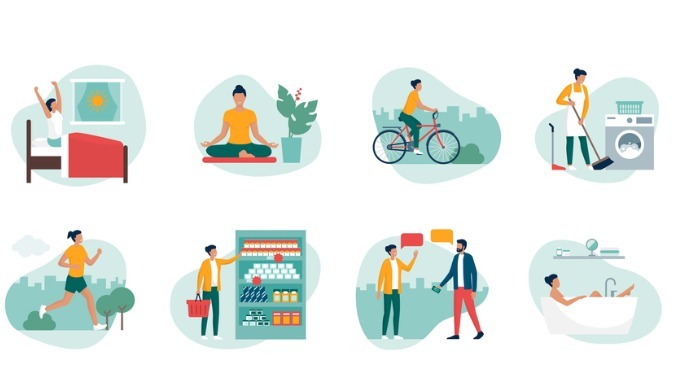
In her latest article, Education Executive’s Laura Williams delves into the pervasive nature of habits and the significant impact they have on our daily lives. From the routines we follow to the automatic responses we exhibit; habits shape our behaviours and emotions in both personal and professional realms
Recently I read an article that said that 45% of what we do every day is done out of habit. Apparently, it can be even higher if we’re in the same environment, and around the same people, on a regular basis.
Immediately, I was like… no, that can’t be right! Then I sat for a moment and thought about it.
If I set aside my morning and evening routines (which, though they evolve, are essentially habitual) and think about my work, the jobs I do around the house and the things I do in my downtime then, actually, yes, I do a lot of stuff automatically!
Habits create structure and routine; they keep us focused and give us comfort. They are learnt from experience – they help us to avoid something bad or reward us with something good ( that feeling of satisfaction when we’ve ticked something off our to-do list). Habits create feelings and responses and are a valuable tool.
Some habits are conscious choices, things we do because they make us feel good or because they help us to achieve something good.
But what about other types of habits? The subconscious kind, the ones that we don’t even question? The habits we’ve developed to survive in a context we can’t control? The habits that have grown to be so automatic that they’ve become a way of life – but don’t actually serve us?
Conditioned actions and responses
So much, of not only what we do, but also what we think and feel, is automatic; conditioned actions and conditioned responses – and we probably do this a lot more than we think we do in the workplace.
Think about:
- The way you react when something goes wrong.
- The way you feel when someone says something negative.
- That thing you automatically do just to save the argument.
- That thing you automatically say just to keep the peace.
- That thing you never say or do because it’s just not worth the consequences.
These negative habits. and ‘automatic’ responses. create negative emotions yet we’ve convinced ourselves that saying or doing (or maybe not saying or doing) these things is the only way forward or that ‘This is just how it is’.
The good news is that habits can be broken; we may not be able to change what happens to us, but we can change how we respond.
First of all, you need to identify what triggers you; where and when does this habit, or automatic response, show itself? How does it make you feel? Is it attached to a person, a place or an event? What can you learn from this?
Then you need to focus on your desire for change. What is your goal? Why do you want to do something differently? How will you feel if you stop doing a specific thing or behaving in a particular way?
Then it’s time to make a plan!
- Ask for support. Is someone you know struggling with the same thing? Can you help each other? Do you have a friend or colleague that you can talk to, to help keep you focused? Accountability can help so much!
- Leave yourself reminders. Maybe you make a note in your diary or on your calendar. Maybe you set an alert in your ‘phone. Maybe you put a post-it note on your bathroom mirror! Whatever works for you to help your goal stay at the top of your mind.
- Start small. Don’t set yourself up for failure. Breaking a habit takes time. Slip-ups will happen! If you don’t do it every day, try and do it every other day. If you slip up, think of all the times you’ve succeeded and try again tomorrow.
- Incentivise yourself.If you’ve done something every day, or a set number of times, celebrate your success with something you love, or do something you enjoy and rarely get the chance to do!
- Replace negative habits with positive ones.What new habits do you want to develop? How will they serve you? How will they make your life better?
In conclusion, while some habits serve us well, others may hinder our growth and well-being. Fortunately, with awareness, intention, and support, we can break free from negative patterns and cultivate positive change. By identifying triggers, setting goals, and implementing actionable plans, we can replace unproductive habits with those that align with our aspirations and values. In other words – whatever it is that you’re struggling with, you can break the cycle. Change is possible!



Be the first to comment